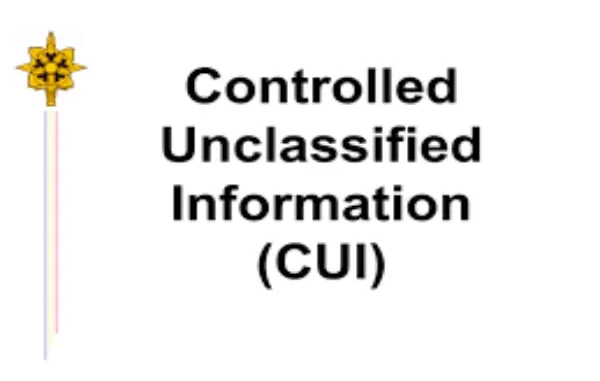
An In-Depth Exploration of the Entities Empowered to Decontrol CUI and the Complex Decision-Making Involved
By Luke Cantrell, Contributing Writer
Controlled Unclassified Information (CUI) stands as a crucial category within the landscape of sensitive information, straddling the boundary between classified and publicly accessible data. As governments and organizations grapple with the balance between security and transparency, the question of who possesses the authority to decontrol CUI surfaces as a complex and critical issue. The process of decontrolling CUI involves navigating intricate webs of regulations, agency policies, and the overarching need for informed decision-making.
Defining CUI and its Significance
CUI encompasses a wide array of information that is sensitive but not classified as top-secret or classified. It includes data that, if improperly accessed or disclosed, could potentially compromise national security, individuals’ privacy, proprietary business interests, or international relations. Unlike classified information, CUI is meant to be shared with individuals on a need-to-know basis, and its protection is vital to maintaining public trust and safeguarding sensitive operations.
The Multifaceted Decision to Decontrol CUI

The process of decontrolling CUI involves determining when information that was once designated as sensitive can be made available to a broader audience or even released to the public. This decision is far from simple, as it necessitates weighing various factors, including the sensitivity of the information, potential consequences of its release, and the evolving threat landscape.
Entities Empowered to Decontrol CUI
- Original Classification Authorities (OCAs): These entities, often government agencies or departments, hold the initial authority to designate information as CUI or classify it. OCAs play a vital role in assessing the risks associated with specific information and making decisions regarding its protection level. Consequently, they are also entrusted with the responsibility of determining when CUI can be decontrolled.
- Decontrol Authorities: Some OCAs have the authority to decontrol certain types of CUI within their purview. They assess whether the information’s sensitivity has diminished over time, allowing for wider dissemination. However, decontrol authorities must be cautious, as their decisions can have implications for national security, public safety, and international relations.
- Interagency Security Classification Appeals Panel (ISCAP): ISCIP is an independent panel that assesses appeals from individuals or entities seeking the declassification of certain information. It reviews whether information has been appropriately classified and whether it should be decontrolled based on new circumstances or changed context.
- Presidential Executive Orders: The President of the United States can issue executive orders that declassify certain information or revise classification guidelines. These orders can reshape the declassification landscape, leading to the release of information previously considered sensitive.
The Tug-of-War Between Transparency and Security
The decision to decontrol CUI is not a unilateral process; it involves an intricate balance between the need for transparency and the imperative of national security. Decontrolling sensitive information can foster public trust, aid historical research, and facilitate accountability. However, a misstep in declassification can also jeopardize ongoing operations, expose individuals to risks, and damage international relations.
Moving Forward: Informed Decision-Making and Collaboration

As technology evolves and the landscape of information dissemination shifts, the process of decontrolling CUI will continue to be a dynamic and complex challenge. Striking the right balance between transparency and security requires the collaboration of experts from diverse fields, including information security, law, diplomacy, and public policy. Comprehensive guidelines, rigorous review processes, and clear lines of authority are crucial to ensuring that decontrolled CUI serves the interests of both a transparent society and a secure nation.
The question of who can decontrol CUI is not a matter of simple authority; it’s a reflection of the intricate dance between openness and safeguarding sensitive information. In a world where information flows freely yet must be guarded judiciously, the decision-making process surrounding declassification stands as a testament to the complexities of a society striving for both accountability and security.

Leave a Reply